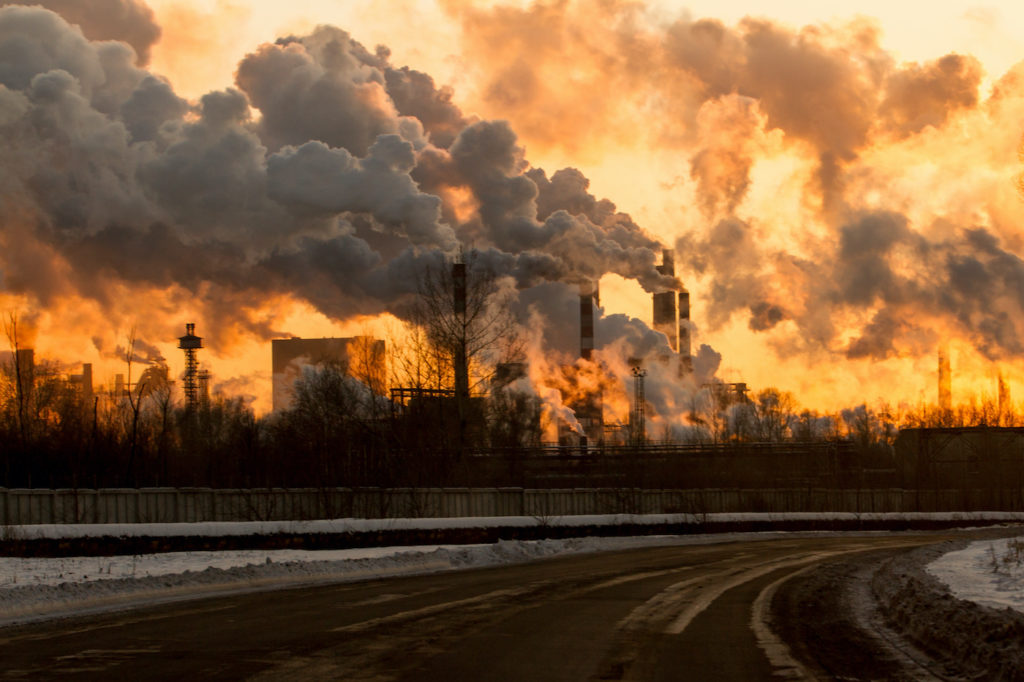Conservatives have failed to take climate change seriously. Some have vague awareness and concern about the climate’s future. But time and time again, the political right hasn’t heeded scientists’ warnings about troubling consequences of our self-indulgent dependence on fossil fuels. Preventing global warming—or “climate change,” or whatever the fashionable phrase is—has become the mainstream left’s project. But if human activity is indeed causing environmental changes—including, but not limited to, increased temperature due to excess atmospheric CO2—everyone, and especially conservatives, ought to recognize the moral obligations we have to prevent harms that would otherwise result.
Henry Shue’s recent book, The Pivotal Generation (Princeton University Press 2022), a forceful ethical argument about the urgency of addressing climate change, drives this point home. It is a non-technical plea for action; it does not get bogged down in scientific data or climate modeling (which is always subject to revision and change). The book is well-researched and heavily foot-noted, but it is written for a popular audience. One need not be a climate scientist or a professional ethicist to understand the force of Shue’s argument. And that is one of the most refreshing points about the book: it presents a clear, coherent moral argument, not a moralizing diatribe or question-begging screed fit for the Twittersphere. Shue maintains his respectability as a prominent political and moral philosopher while addressing a divisive moral and political issue.
We enter a world already tied up with pre-existing relationships, duties, and obligations that we must navigate with prudence and historical awareness. These are basic principles of conservatism.
While not directed at conservatives, as this review is, many of the book’s arguments will have greater purchase for readers who recognize the existence of binding moral obligations outside our control or choosing. We are not isolated individuals, free to create our own moral codes and obligations based on our preferences, desires, self-identifications, or conceptions of reality; rather, we find ourselves placed in particular, concrete situations. We enter a world already tied up with pre-existing relationships, duties, and obligations that we must navigate with prudence and historical awareness. These are basic principles of conservatism. Given the potentially drastic environmental changes awaiting future generations, conservatives ought to consider addressing climate change a top priority.
Start your day with Public Discourse
Sign up and get our daily essays sent straight to your inbox.Unchosen Obligations
The central argument of The Pivotal Generation is that it is unfair to knowingly force the costs—economic and practical—of our choices on future generations. By enjoying the benefits of fossil fuels, we are burdening future generations who must deal with the environmental fallout. In other words, by increasing atmospheric CO2 and thus global temperatures, we cause preventable harm to future persons. Preventing this future harm will require sacrifice, and the burdens of that sacrifice should be borne by those who have most benefited from the potentially harmful CO2 emissions, i.e., people in developed countries like the United States.
Conservation, even etymologically, bears much similarity to conservatism: preserving what is good, healthy, and beautiful. The problem, of course, is that solving a problem as global and widespread as greenhouse gas emissions would likely require coordination, regulation, and compulsion by the state, which often raises the hackles of the American right.
Yet Shue’s philosophical presentation should strike a chord with all open-minded readers, including those on the political right. Consider, for example, the major premise of Shue’s argument: even though we as individuals didn’t choose fossil fuel dependence, we nonetheless have a moral obligation to prevent an avoidable harm to future generations. That is, we are morally obligated to preserve the lives and livelihood of persons not yet born. Conservatives have articulated this basic principle in the abortion debate for decades; Shue applies this same principle to the climate change debate.
We ought to take seriously Shue’s point if we believe that those in the present have a duty to transmit the good from the past to those in the future. I take this to be the fundamental conservative impulse. Conservatism is not a simple “looking backward,” as if for nostalgia’s sake. Rather, the point is to preserve goods that have been built by previous generations for the sake of those still to come. The commitment to these multigenerational goods is the reason conservatives are reluctant to embrace revolutionary changes that dispense with the past. It is for this reason that the purpose of climate change policy is deeply conservative: the goal, as Shue explains, is to preserve certain environmental conditions—which previous generations enjoyed—for the benefit of future generations. To employ a Lord of the Rings reference: the Scouring of the Shire was a conservative, not a progressive, undertaking.
We are morally obligated to preserve the lives and livelihood of persons not yet born. Conservatives have articulated this basic principle in the abortion debate for decades; Shue applies this same principle to the climate change debate.
Conservatives, however, will not cheer The Pivotal Generation cover to cover. It is dusted with lines that might not gel with readers on the political right. Shue takes stabs at the Trump administration’s withdrawal from the Paris Agreement and he considers the necessity of natural gas (and delivery pipelines) a “myth.” He mentions in passing contraceptives as important means to environmental sustainability. But ultimately these positions are inessential to his chief argument. His main point, the moral point, transcends these political asides.
In addition to Shue’s points about our duties to unborn generations, conservatives would likely sympathize with some of his supporting arguments, despite his being critical of the political right. Even though Shue’s expansive take on human rights might arouse suspicion from classical liberals, it is in many ways consistent with Catholic social teaching. At times, Shue echoes Pope St. John XXIII, who described man’s rights to “the means necessary for the proper development of live, particularly food, clothing, shelter, medical care, rest, and, finally, the necessary social services.” Similarly, Shue’s condemnation of generations that reap benefits from irresponsible policies, while imposing the burdens on later ones, will probably sound familiar to and resonate with conservatives anxious about the national debt and irresponsible borrowing.
Tensions within Conservatism
The book is a mere five chapters. It simply lays out the problem and explains why all of us, especially those living in the developed world, have a moral obligation to act immediately for the sake of future generations. Sometimes less is more: by not arguing for specific policy solutions, Shue leaves open the question of which policies would best address climate change.
This political question of climate change, however, presents difficulties for conservatives. Addressing climate change in a way that would actually benefit future generations seemingly requires national, if not global, coordination. Preventing the future harms of climate change would presumably require radical sacrifices from the generations living now. Rationing or more heavily taxing energy consumption would increase costs of nearly everything; consumer choices would dwindle; travel would be suppressed; many of the twentieth and twenty-first century’s material blessings may become prohibitively expensive or contrary to public policy. The civilian sacrifices made during World War II can model how Americans responded to an urgent national (and global) need in the past. But many of those wartime sacrifices were made under compulsion. It seems that similar compulsion, if imposed today, would encounter more resistance.
Higher costs associated with climate change policy might force simpler ways of life upon us. We can take advantage of these simpler ways of life and redirect our focus towards the things that matter: God, religion, family, and virtue.
Therefore, preserving healthy environmental conditions for future generations will undoubtedly curtail economic freedoms and will, at least in the short term, curb economic growth. None of this will sit easily with those who favor small government and the politics of prudence. But climate change, by its nature and urgency, does not seem realistically solvable through individual responsibility, local action, and incremental changes that conservatives prefer.
The end—the preservation of a hospitable environment for future generations—is one that should be endorsed by progressives and conservatives alike. But the most obvious means to achieving that end are in tension with conservative political philosophy. As such, progressives are largely in the driver’s seat when it comes to climate change policy. They are more comfortable placing power in the hands of experts, restricting economic growth for the sake of the vulnerable, and proposing sweeping, multigenerational changes to the social and political landscape.
Even though it’s unlikely that conservatives will end up in the driver’s seat crafting national climate policy, they can nonetheless respond powerfully to climate change with their lifestyles and economic choices. Higher costs associated with climate change policy might force simpler ways of life on us. We can take advantage of these simpler ways of life and redirect our focus toward the things that matter: God, religion, family, and virtue. Increased costs of transportation might place greater emphasis on local commerce and community. Our work and leisure might be more geared toward production—i.e., participating in God’s creation—than consumption. And there appears to be an appetite on both ends of the political spectrum for something other than twenty-first century consumerism. Creative conservative minds can offer a vision of what a truly sustainable life looks like, and perhaps some can craft policies consistent with this vision. But they should begin by taking climate change seriously.













